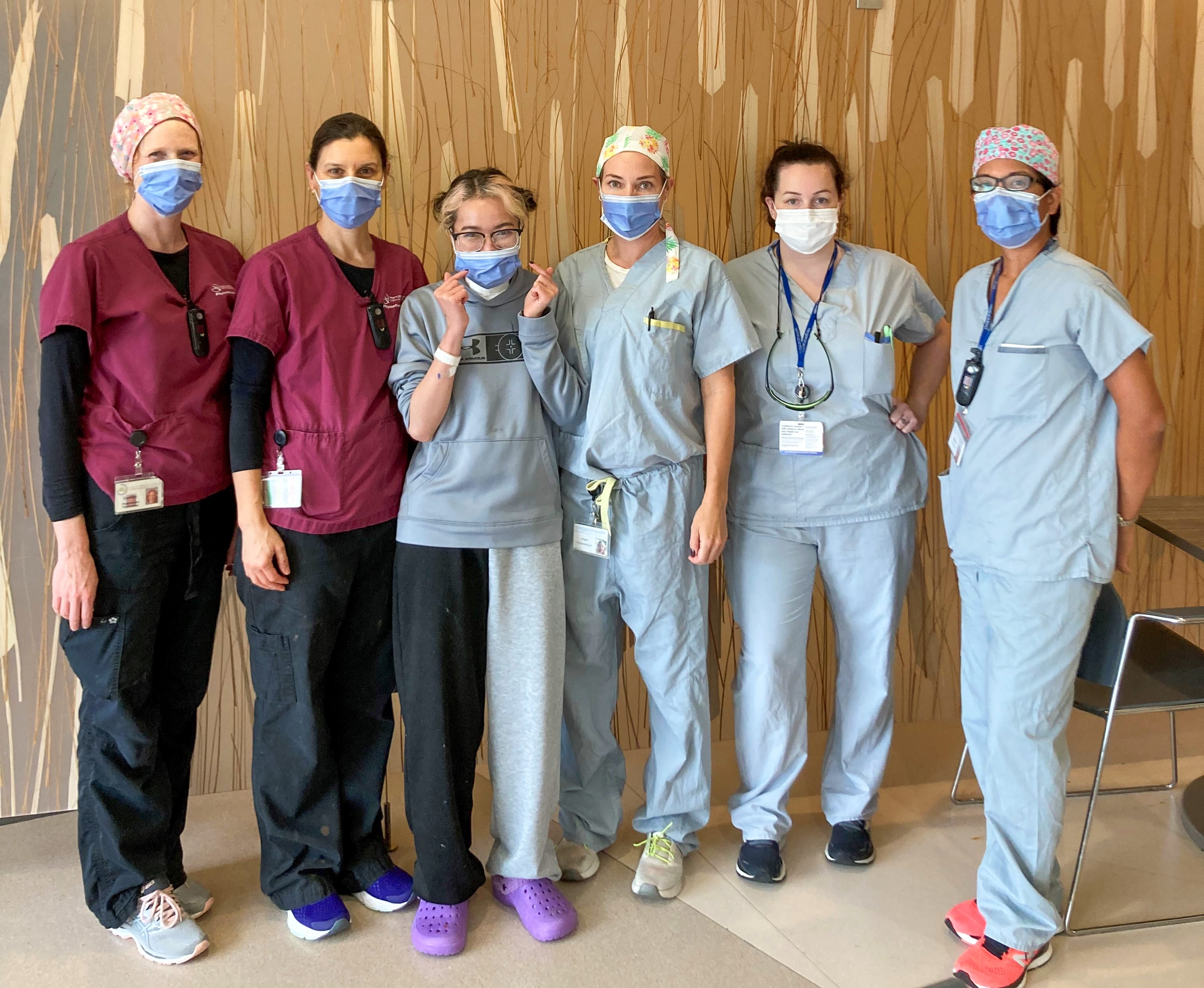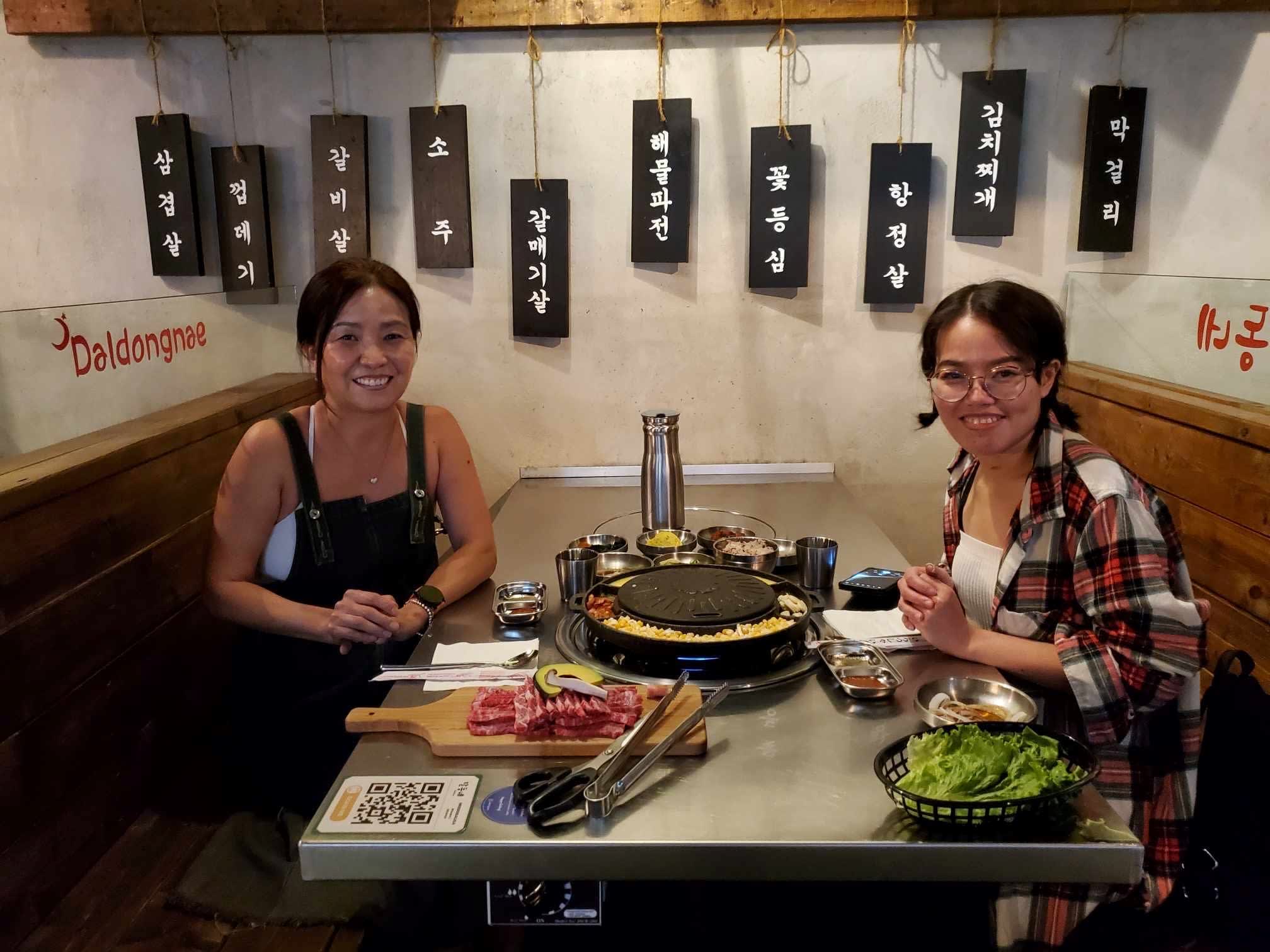This is an opinion column by Niagara Health Communications Specialist Tiffany Mayer, published in the St. Catharines Standard, Niagara Falls Review and Welland Tribune.

Thao Pham looks forward to travelling to Vietnam this spring to see her family.
It’s her first trip there in six years, and in February 2022, it seemed like an impossibility for the young woman who came to Canada to study in 2018.
But so did everything else – from the milestones to the mundane – because two years ago this month, Pham was near death.
“I didn’t think I could survive. At some points, I wanted to give up,” Pham recalls. “They thought I was going to die so my mom came here (from Vietnam) to be with me.”
‘They’ are Pham’s medical teams at Niagara Health, who worked unyieldingly for eight months in 2022 to help the 30-year-old woman get her life back after tuberculosis (TB) sent her to hospital. Most of that time was spent in the Intensive Care Unit (ICU) in St. Catharines.
All the while, Pham’s team of doctors, nurses, respiratory and occupational therapists, and physiotherapists became like family. And, like family, they worried about her.
“The staff was rooting for her and wanting her to get better so badly,” says John Chirico, Pham’s respiratory therapist.
Pham’s journey with Niagara Health started at the Niagara Falls hospital when she went to the Emergency Department because she was having difficulty breathing and felt tired.
She was admitted for TB, an infectious lung illness that can be fatal without treatment. A setback came two weeks later when she was diagnosed with COVID-19 during her treatment. Medical teams at Niagara Falls continued to care for Pham until she had to be intubated in early March and was transferred to the ICU in St. Catharines for what Chirico describes as “one of the longer stretches” for a patient to be on a ventilator before coming off it.
Even with a ventilator to help her breathe, keeping Pham’s lungs oxygenated proved difficult, Chirico recalls. She was briefly transferred to hospital in Hamilton for extracorporeal membrane oxygenation, a prolonged respiratory support for patients whose lungs can’t provide enough oxygen to sustain life.
By no small miracle, Pham wouldn’t need the extra life support. She returned to St. Catharines but there would still be obstacles to her recovery.
“She had lung damage because of TB. One of the main goals was to get her off the breathing machine,” Chirico says.
“It’s definitely a multi-disciplinary approach to care. Everyone was rooting for her. It’s been a challenging few years for everyone in healthcare. ICU got hit hard and this was a feel-good story that offered hope. It reaffirms why we do what we do, which is to help people heal and get their health back.”

Thao Pham (right) enjoys a meal of Korean barbecue with Scarlett Seo, a former Niagara Health intensive care unit nurse. The two women stayed in touch after Pham spent eight months in hospital in Niagara recovering from tuberculosis.
Progress was slow, despite Pham’s positivity, which Chirico says he witnessed through it all. At one point, Pham’s TB caused her lungs to collapse. Then there was the near loss of hope by everyone in May when her mother travelled more than 13,000 kilometres to say goodbye to the daughter she thought was dying.
She was the only person allowed to visit Pham because of hospital visitor restrictions for patients with TB.
Through it all, Pham was conscious but unable to speak because of her tracheostomy. Now, mostly recovered and living with an uncle and aunt in Newmarket, she talks candidly about that time.
“I was feeling thankful the doctors wanted me to get better,” she says. “All my friends and family, they prayed for me.”
Soon after her mother headed home to Vietnam, Pham’s TB became inactive. Her recovery began to quicken. After all, there were milestones to achieve and celebrate, including her birthday in June, an occasion marked by her medical team in ICU with balloons and a banner, cheerful messages scrawled on her hospital room window, and nurses doing her hair and nails.
“They tried to make me feel happy,” she says. “They talked to me and I felt less lonely.”
They also encouraged her to build her strength. After six months in bed, Pham’s muscles had atrophied to the point where sitting in a chair was more chore than comfort.
Former ICU Nurse Scarlett Seo, who bonded with Pham over a love of Korean food, remembers Pham resisting at first. But Seo, who Pham says became like a mom after she left the hospital, motivated her with promises of sharing Korean soup when she got better.
“Before, I was very independent. When I woke up (after my tracheostomy) and couldn’t talk, I was shocked. I cried when I couldn’t do anything myself.”
“As her nurse, I told her, ‘I’m not giving you a choice. You have to get stronger, you have to get up. You have to get better,’” says Seo, who left Niagara Health to pursue northern nursing. “It’s such a good memory taking care of her.”
Trying to sit up and take steps became part of her daily routine. So, too, was taking time off the ventilator as Chirico worked to get Pham breathing on her own.
None of it was easy, not just because of the energy it took, but because of how much she relied on others to help her with everything she did.
“Before, I was very independent,” Pham says. “When I woke up (after my tracheostomy) and couldn’t talk, I was shocked. I cried when I couldn’t do anything myself.”
Through it all, she focused on the encouragement of her care team.
By late August, the Happy Birthday banner was edited to mark Pham’s first full day off her ventilator. ‘Happy Off Ventilator Day’ was celebrated by speaking her first words in months, including a three-hour phone conversation with family back home, sipping bubble tea and eating a Boston cream doughnut.
“Everyone was so happy,” Chirico recalls. “The nurses were crying.”
These days, everyone marvels at her incredible recovery, including Pham. After leaving the hospital that October, she continued working with physiotherapists at Toronto’s West Park Healthcare Centre before moving in with her uncle and aunt that Christmas and starting a part-time restaurant job where she now outpaces some of her coworkers during a shift.
Since then, she’s returned to St. Catharines twice to visit with her care team, keeping them posted on her progress and showing her gratitude for their caring. She also got her care package of soup from Seo.
“It’s definitely a multi-disciplinary approach to care,” Chirico says. “Everyone was rooting for her. It’s been a challenging few years for everyone in healthcare. ICU got hit hard and this was a feel-good story that offered hope. It reaffirms why we do what we do, which is to help people heal and get their health back.”
Pham is grateful to them all. She isn’t back to the way she was before getting sick but the experience makes her feel like she could overcome anything, she says.
“After the hospital, I had to start everything over. Everything is better now,” she says. “I’m glad I’m still here and working and have a future.”

